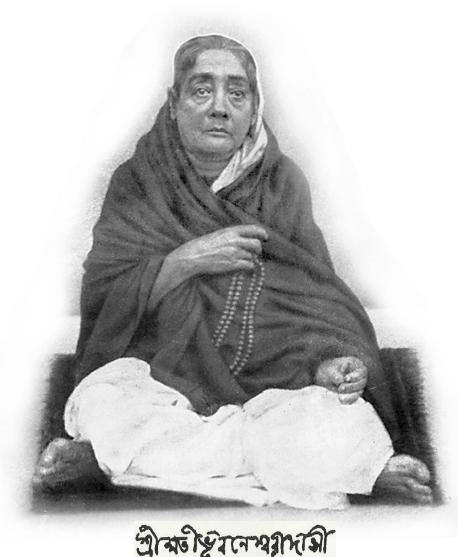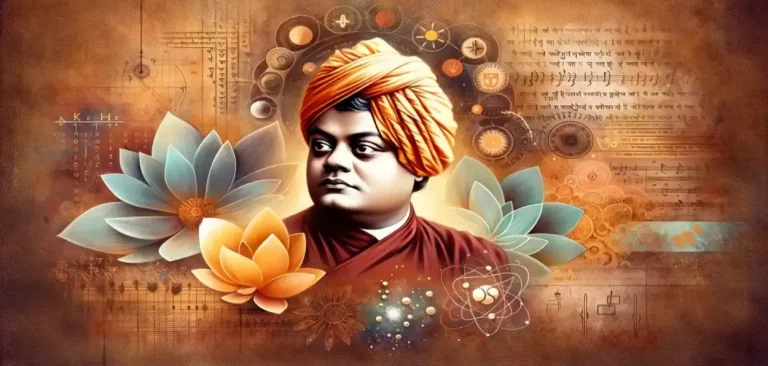Saqib Saleem
“Swami Vivekananda was a product of his social environment,” Bhupindranath Datta said of his younger brother's attitude towards Muslims. Bhupendranath Datta, the revolutionary and thinker, wrote a book, Swami Vivekananda: The National ProphetTo discuss many myths about his brother and the influences that made him a secular rationalist.
Many followers and critics of Swami Vivekananda, born Narendranath Datta, try to portray him as a sectarian-minded person who does not like Muslims. Nothing could be further from the truth.
Bhupendranath explained their home environment while the brothers were growing up. Their father Bisvanath Datta (or Vishwanath Datta) was a lawyer in Kolkata.
Bhupendranath writes: “Bisvanseth was a product of ancient Hindu-Muslim civilisation… In dress, food and etiquette he followed the ancient common Hindu-Muslim traditions. And again, in some matters of daily life he followed European customs like other nobility of the period. He gave Dakshinas for the Brahmins, and he also honored the Pir.”
.png)
Bhupendranath Datta, brother of Swami Vivekananda
The book says that “some fanatical Brahmins” slandered Swami's father to target him. They claimed that he, like his father Swami Vivekanad, had deviated from “true Hinduism”. “Some of Ramakrishna's disciples have made a biased remark that Bisvanath advised his son to read the Bible and read the Bible,” he wrote. Diwan Al-Hafiz Because he was not familiar with Hindu religious ideas.
He added that he was “grateful to his father for bringing the younger generation out of the octopus of priestly superstition and pointing to a new model of life. Bevanath was a liberal Indian with an artificial mind. That is why his descendants became 'extremists' in their ways of thinking.”
Bhupendranath wrote that his mother Bhubaneswari Devi, whose influence on the Swami's life was known, also had similar views towards Muslims.
Bisvanath once bought a plot of land in Upper Ring Road, Kolkata in the name of his wife Bhubaneswari. It also had the dargah of a Muslim saint and the place was called Manikpir Dargah. His wife received the rent and her share of the offerings made by the devotees at the dargah daily. She started getting 5-6 rupees a day, which was a good amount in the late 19th century. This money was partly used as pocket money for Vivekananda.
One day, the Muslim caretakers of the dargah appealed to Bisvanath to waive the rent of the dargah. He simply told them that since Bhubaneswari was in charge of the property, only she could take the decision. The Muslims went to Bhubaneswari and repeated the request. “On hearing their case,” Bhupendranath wrote, “I ordered: ‘Your (McCub) rents shall not be taken.’”

Bhubaneswari Datta, mother of Swami Vivekananda
Swami grew up in a home where Muharram was respected and his mother used to narrate the story of Karbala with emotion.
Bhupindranath writes: “Since the month of Muharram, drum-beating Muslims have been coming to Hindu areas to collect money for their festival. Hearing the drum-beating, young people used to get curious about the story that led to ‘Guanra’ as the Hindus call the Muharram festival. It was a festival day for the Hindus Also. In Upper India, Hindus largely participated in processions. In Calcutta, in late 1906, the writer saw Bengali Hindu boys participating in the procession and playing with the lathi (stick) in it. We heard from our mother about the battle of Karbala. He was crying and sighing at the fate The tragedy of Hassan and Hussein.
Bhupendranath remembers a fakir from the Manikpir dargah as “an inseparable part of his boyish life”. The poor man would come, he wrote, “every evening, and a shrill cry would enter our ears—manik pir-r!” Then we understood that the waiting poor had entered our neighborhood. The next scene was, with a big old-fashioned kerosene lamp (sharag), the waiting Fakir coming through our front door, placing the lamp soot on our foreheads as he blessed Tilak: “Let the pir give you a long life” and we were paying him a pie for Bear“.
Anyone who knows Swami Vivekananda has a good idea that Ramakrishna Paramhansa had the greatest influence on his spirituality. The kind of man Paramhansa was is rarely discussed.
Bhupendranath Datta writes that Paramhansa was not a guru in terms of traditional doctrine. He had great respect for every religion and had students from every class and creed.
Bhupindranath stated, “Sometimes he (Paramhansa) would make sadhana as a companion of God (sakti) by dressing as a woman, sometimes he would dress as a Mohammedan and eat onions and recite the name of God, and sometimes he would impersonate a monkey Hanuman by wearing a tail and reciting the name of Ram.”
The Paramhans also had Muslim devotees like Sri Sheikh Abdul Sohan, Sri Sheikh Barkatullah, Sheikh Namdar, Sheikh Kamdar, Sheikh Mashmula, Sheikh Khatir Mistry, Sheikh Mairadi Maula and others.
Read also: Rabindra Mohan Kar: Indian revolutionary who almost lost his memory
This was Swami Vivekananda's environment which shaped his social view that people of all religions are human beings.

